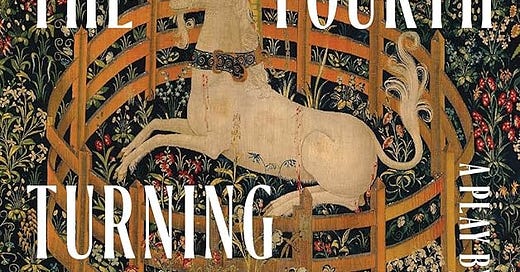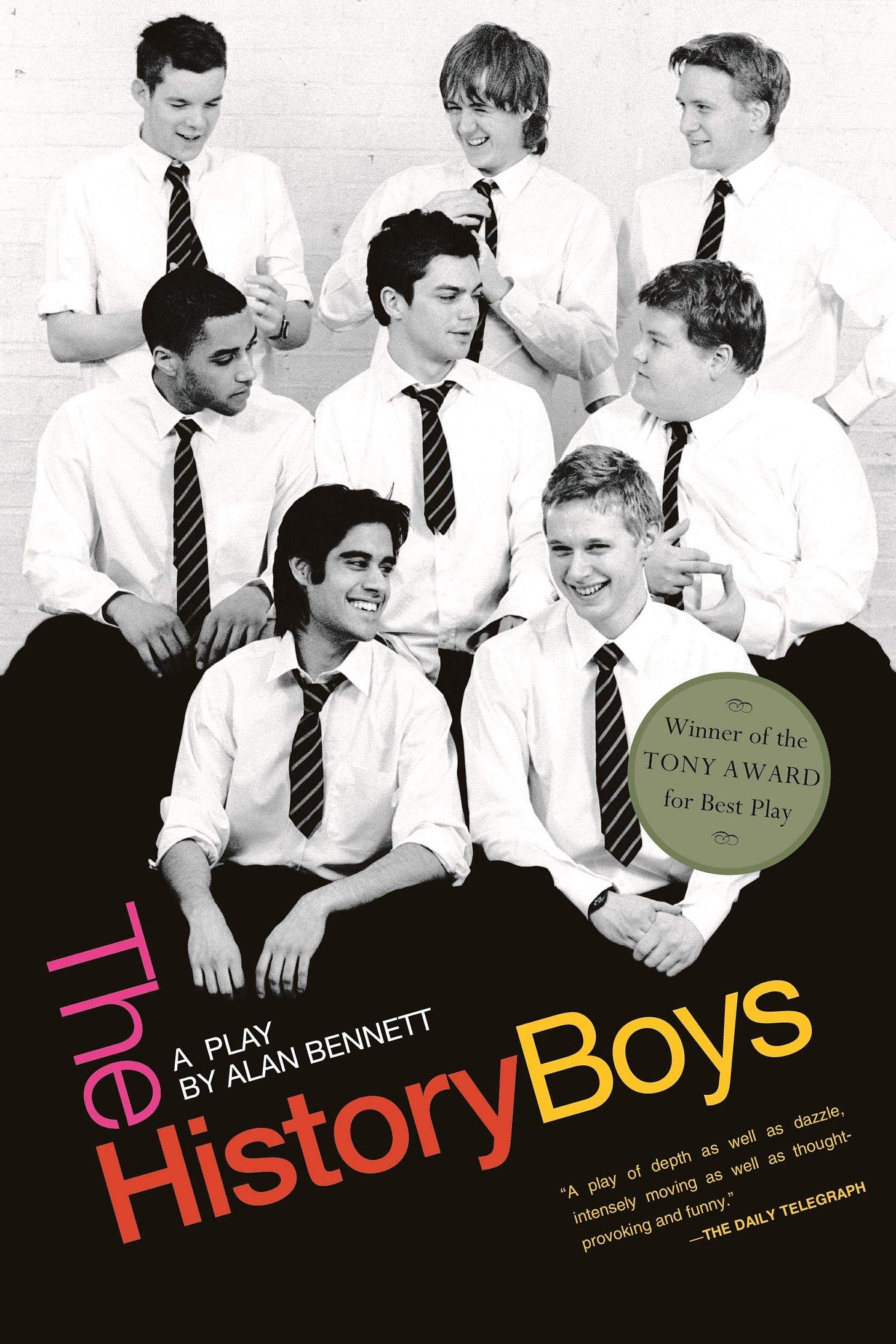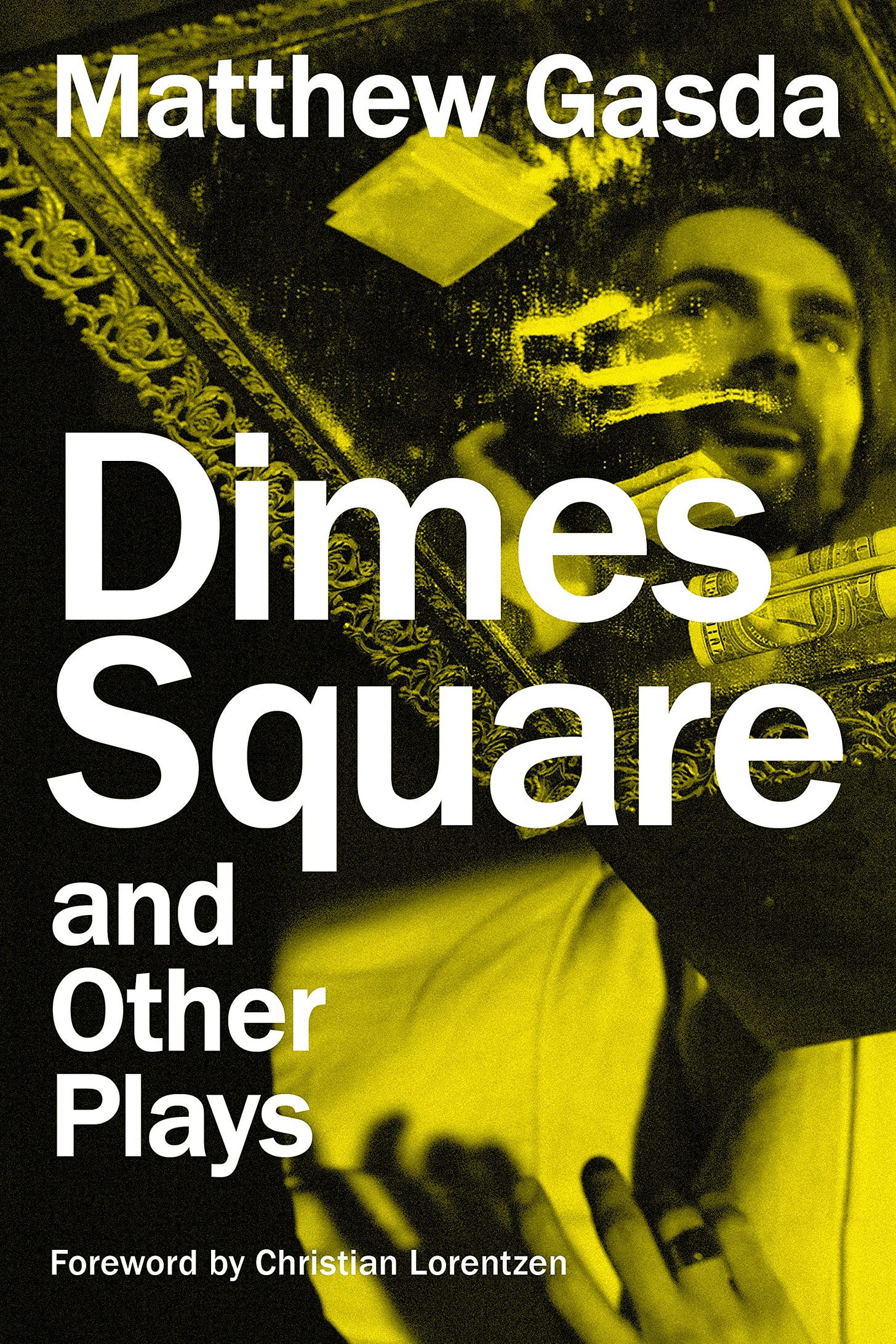Writing my piece on Peter Hall’s diaries made me curious to see what has been happening on the modern stage. Find below my impressions of three plays, one twenty years old and two from the last five years1. Reading is generally a poor substitute for seeing things staged and acted, but I tried to give them all a fair shake.
The History Boys by Alan Bennett
Alan Bennett is a British national treasure who has never made much of a dent over here, but The History Boys, his most famous play, has by now firmly established itself in the late 20th century canon. It follows a group of working-class schoolboys studying for their Oxford and Cambridge entrance exams and the differing philosophies of their two teachers: the avuncular Hector, who delights in knowledge for its own sake, and the more mercenary Irwin, who teaches them to be daring and contrarian verbal jousters in the hopes of making an impression on their Oxbridge examiners.
A good part of me dislikes this play. Though the dialogue is often witty and Wildean, it has a certain element of self-satisfied British twee2. All the boys appear identical on the page; despite their superficial differences (the brown one, the gay one, the Jewish one, the fat one), they largely speak with the voice of Alan Bennett and have a recurring bit of re-enacting scenes from classic Hollywood films and singing the Great American Songbook for their teacher, a hilariously unlikely pursuit for boys in 1980s Yorkshire. In general I find narratives about teacher-student relationships tend towards the schmaltzy and despite running a literary Substack I find the celebration of learning qua learning tiresome and self-congratulatory.
But it has to be said that there are interesting ambiguities and tensions to The History Boys that keep it from fully tipping into Dead Poets Society territory. The easy way out would be to have Hector’s humanistic vision triumph over Irwin’s teaching to the exam. But it doesn’t. Irwin is also right in his way: you can’t just congratulate yourself for doing the reading and being a “cultured” person, you have to make something new of it, even if it means trying on positions you initially find absurd or perverse.
The other discordant note in the play is Hector’s pederastic interest in his students, which is treated as more of a harmless and slightly pathetic eccentricity than a serious moral transgression3. Reviews of the present revival have been quite shocked by this indifference, but one senses Bennett has some sympathy with Hector’s blithe assertion that the transmission of knowledge is itself an erotic act. These, combined with the fate of several of the more lovable characters, makes The History Boys a knottier and more interesting play than it initially seems, even if it’s not quite enough to escape its ultimate status as middlebrow crowdpleaser.
Dimes Square by Matthew Gasda
Two years after its moment in the sun seems the right time to pick up Matthew Gasda’s Dimes Square and see if anything of lasting artistic value came out of this self-celebrating and short-lived scene. I was pleasantly surprised by what I found — this is a real play with real concerns, not just a vicious comedy of manners but a play preoccupied with how to be an artist without drifting into dissolute nihilism, and what one might have to give up to make that possible.
Dimes Square is set in one room and chronicles a few nights in the lives of the titular downtown social set, described with blithe concision in the cast list as “Iris, MFA poet,” “Klay, Journo dude” and the like. They’re friends, nominally, but uneasy transactions of social status predominate. Jealousy and insecurity define them: one artist envies the success of another, tension hangs in the air between the jaded scene girl and the fresh-faced ingénue. The sexual dynamics are, as you’d imagine, messy. Gasda’s scene-by-scene approach here is quite skillful; every scene between two characters introduces a new conflict and complicates the overall dynamic of the group.4
In the second half, two older men, the editor Chris and the novelist Dave, barge Pozzo-and-Lucky-like into the scene. Both are fearsome and witty, and have achieved the success the younger characters dream of, but seem stunted, drinking at the same bars and doing the same drugs they did twenty years ago. There’s a choice these bohemian characters have to make, one I’ve seen in my own friends’ lives as I approach the end of my twenties. You either grow up and settle down and become quote-unquote normal or you stay in the demimonde forever, passing through a period of awkward, lonely middle age before (if you make it long enough) achieving recognition as a scene elder, which you may find too late is a poor substitute for familial love and stability. Chris and Dave have made their choice, and one wonders if it was the right one, or if there is a right one at all5.
It happened to work out that I read Dimes Square right after The Sun Also Rises. It’s quite striking how many of these basic social archetypes never change, it makes you realize that all the talk of Metrograph and e-girls is just window dressing. Hemingway’s polyamorous Brett Ashley, sensitive scapegoat Robert Cohn, and wounded, impotent Jake Barnes could step right into Gasda’s living room. But in The Sun Also Rises, the hedonism of the characters is balanced by the enduring rhythms of the natural world; the edenic fishing trip in the middle of the book and the pagan intensity of the bullfight. Similarly in Waugh’s Brideshead Revisited (another chronicle of privileged wits) the decadent Oxford section is offset by the spiritual journey of the protagonist in the second half. In Dimes Square, we’re given no such reprieve but are trapped inside the living room, empty beer cans on the table, head pounding. There are small, easily missed intimations of grace, such as a brief moment towards the end where Terry, the frustrated filmmaker, describes being brought to an awareness of a larger reality by a friend’s sick child6. But a few pages later, he’s abandoned those thoughts and given his final line: “Let’s try not to think about it.” Dimes Square is a social comedy that feels like a nightmare. The question is, how does one wake up?
Heroes of the Fourth Turning by Will Arbery
Like Dimes Square, Heroes of the Fourth Turning is about a group of young adults trapped by limited ideological horizons, seeking to make sense of the tumultuous world. But while Dimes Square’s downtown nihilists might flirt with Catholicism as an aesthetic statement, the Heroes are the real deal, conservative Catholic intellectuals returning to their religious college in Wyoming to celebrate the promotion of their mentor. And like Dimes Square, it puts a group of disparate personalities in a room and tweaks them until conflict erupts. There’s Kevin, a neurotic alcoholic, Justin, a stoic cowboy type, Teresa, a far-right pundit in the big city, and Emily, a gentle soul who suffers from a mysterious chronic illness.
Will Arbery grew up in an environment similar to the small, rural Catholic college in the play. I don’t know anything about his actual political leanings or his faith. If I had to guess, I’d say he likely broke with conservatism in the process of becoming a big city artist. But unlike many people who win acclaim in the metropole by telling horror stories of their unenlightened upbringing, Arbery treats these characters and ideas with deep respect and presents them as the serious challenges to liberal orthodoxy that they are. Here’s an elegant defense of conservatism from Gina, the college’s president and matriarch:
GINA. The space between the cup and the lip.
Martin Diamond talked about this.
The little space between the cup and the lip.
Just waiting a little longer to taste the wine...(She gestures as though she's drinking from a cup and holding it there still.)
You ever watch those old Hollywood romantic comedies that were made during the Hays Code era? Anything explicit would be censored. Working within that restraint, those movies are sexier than anything made today. A glance, a slight brushing against the hand, an innuendo...ah.
EMILY. Mom.
GINA. The difference between goal and form. For example, a man wooing a woman, right? The most "efficient" way to get her is to rape her…but the better way is the long process. The wooing.
EMILY. Mom, oh my gosh...
GINA. Or sorry...funerals!
The most efficient way is to burn the body, right away.
But we don't. We have a ceremony.
All of the important things in life have this built-in delay. It gives form to things, it makes us citizens rather than subjects. And when things move too far in one direction, we pull it back. A gentle return to the original form. A return is wonderful. It's coming home.
And here’s a response from the distraught Kevin:
KEVIN. All we know how to do is make things Catholic.
That's all you taught us how to do. At other schools, they allow for different conclusions. But here, we're in the pursuit of the same conclusion - what you want isn't different conclusions, you want better poetry to get us to the same place. You chide us for not being imaginative, but you kick us out of school for smoking a joint. But there's a whole side to life that we’re just pushing down. Like can't we be Catholic and not, uh...
This is what I want more of in political art! Not defenses of one ideology or another but art that presents a system and then sets out to test that system, poke at its flaws, attack its weak points. I love Invisible Man, but I’d feel incomplete if I couldn’t read Ravelstein as well. But the people who had an iron grip on culture until very recently, who are still writing most of the checks, want to quarantine the latter and give you a thousand much worse and more didactic versions of the former. It’s a small miracle that this humanistic and fascinating play received wide acclaim from both red and blue tribes.
There are parts of Heroes I thought were slightly overwritten, where characters became mere mouthpieces in a Socratic dialogue about Catholicism and conservatism. But in its best sections, in the way its characters take metaphysical questions so seriously and earnestly, it reminded me of nothing so much as Dostoevsky (the pathetic and tortured Kevin has an especially Dimitri Karamazov quality). How to live, what is moral, what is good: these are high stakes questions and it is rare to find a work portraying modern young people that really grapples with them instead of paying lip service to some nebulous concept like “climate change” or “capitalism”. And at the end of the play, there is an utterly haunting moment where the metaphysical intrudes, a moment of strange daring that took me from admiring Heroes to considering it one of the only great works of political art of the Trump era7.
I also read Edward Bond’s Bingo, which Hall had kind words for, but that was too bad to even bother reviewing. Contemporary identity plays might be boring and preachy, but I’ll take them over the crabbed and nihilistic Marxist vision on offer in this utterly depressing tale of Shakespeare’s adventures as a greedy landowner.
Bennett’s novella The Uncommon Reader, in which Queen Elizabeth II develops a passion for literature that enriches her soul and that of everyone around her, sounds unbearable.
SCRIPPS. No. No more genital massage as one speeds along leafy suburban roads. No more the bike's melancholy long withdrawing roar as he dropped you at the corner, your honour still intact.
DAKIN. Are we scarred for life, do you think?
SCRIPPS. We must hope so. Perhaps it will turn me into Proust.
I wonder if Gasda has read Keith Johnstone’s book Impro, which describes all conversations, even the friendliest and most intimate, as exchanges of status. One person says something (“I’m reading War and Peace.”) and the other attempts to either raise (“Isn’t it good?”) or lower (“I could never read something that long.”) their own status in response. This is true of every dialogue ever, once you see it you can’t unsee it, but in Dimes Square the cut and thrust of status is especially inescapable.
There’s also a recognition in the play (echoing oddly with The History Boys) that one has to be a little bit mercenary to be successful. I mean, it’s right there in the title. Calling your play Dimes Square was a clout strategy so good I wish I had thought of it myself. I probably wouldn’t be reading it and he wouldn’t be feted as the chronicler of the scene if it was called something else.
It’s funny how just as Updike and Bellow protagonists chafe against being trapped in the stifling social expectations of marriage and children, the millennial preoccupation involves breaking away from hedonism and self-absorption enough to recognize that marriage and children might be nice things to have; see also Sally Rooney or No One is Talking About This (or an early warning in a theatrical ancestor of Dimes Square, Sondheim’s Company).
To this day the only thing I think really captured how it felt to live through 2015-2020 is Twin Peaks: The Return.






Your definition of “Modern” in terms of theater is funny, damming, and accurate if you’re reaching back 20 years ago to find things you like. Nice article and I agree with your Dimes review because I went into it prepared to roll my eyes but he’s striking a chord
Enjoyable reviews, but I'm a little mystified by your comment about "Ravelstein" being "quarantined." As I recall, when it was new there was some controversy about Bellow supposedly "outing" Bloom, but that was about all. My copy is a Penguin Modern Classics edition, pretty much the stamp of highbrow approval.